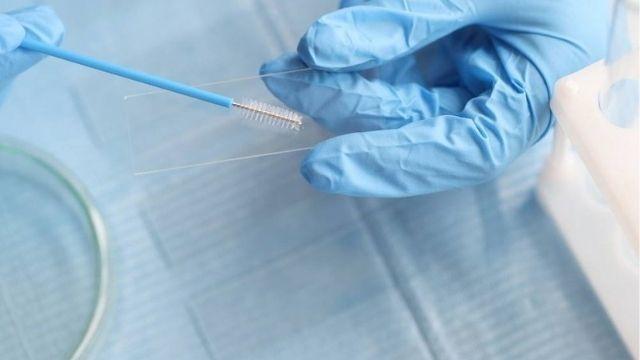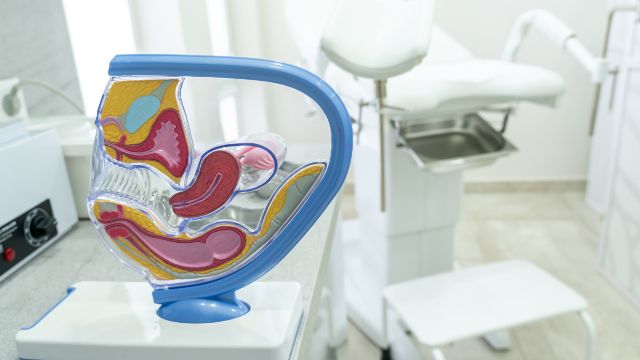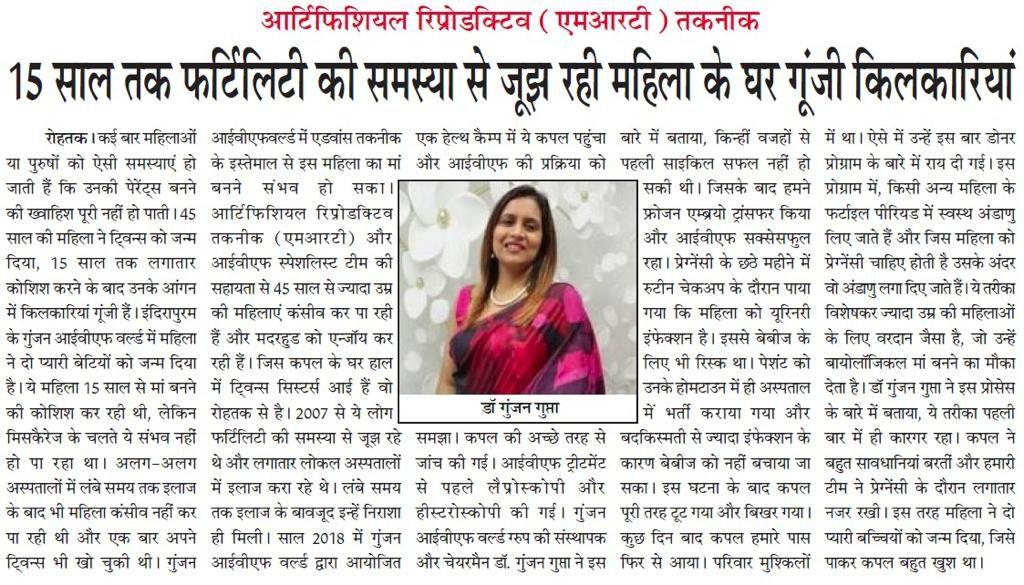PAP SMEAR/Liquid Based Cytology

Overview
Pap smear is a screening test for cervical cancer in women. Cancer is a condition that results from abnormal cell growth. If there is abnormal growth of cells in the cervix (mouth of the womb) it causes cervical cancer. PAP smear test can help in diagnosis of cervical cancer.
A doctor will use small brushes to extract cervix cells during a pap smear test. He/She will then further examine the cells to look for any cell alterations or abnormalities. To better understand this test in detail, let’s learn about cervical cancer and PAP smear.
The presence of infection or inflammation might well be detected by a Pap smear. A pelvic exam or a screening for specific forms of human papillomavirus(HPV) might be conducted simultaneously as this procedure.
Everything You Need to Know About PAP SMEAR/Liquid Based Cytology
PAP SMEAR Liquid Based Cytology | Who conducts this test | Symptoms | Process | During | How is Different | Conclusion
What is PAP SMEAR/Liquid Based Cytology?
Cervical cancer is detected using a Pap smear, often known as a Pap test. Pap smear test is short form of Papanicolaou test. The thin, lower part of your uterus at the upper edge of your vagina is called the cervix. Your doctor will collect cells for a Pap smear from this same location.
Cervical cancer has a high chance of successful treatment if it gets diagnosed early. It is also possible to discover cancer-causing alterations in the cervical cells using an ultra-sensitive Pap smear. Cervical cancer may be prevented in the early stages by performing a Pap smear to identify precancerous cells.
Sub Treatments For Gynecology
We are one of the Best IVF Clinic in Delhi NCR!
51.8K
Subscribers
4.6 (383 reviews)
4.5 (409 reviews)
3.5 (254 reviews)

5 Out Of 5
Who should conduct this test?
Between 21 to 65, a woman should take the exam every three years. At the age of 30, you might well have your Pap smear and HPV tests done simultaneously. So when you do so, you’ll have to get tested once every five years.
There is a relationship between HPV, and cervical cancer, which is the highest prevalent sexually transmitted disease. Your physician may advise you to undergo a Pap test more often if you have specific health issues.
Here are a few examples one might get cervical cancer:
- The presence of precancerous cells in the Pap smear or cervical cancer
- Infection with HIV
- Chronic usage of corticosteroids or transplant-induced immunosuppression
- Diethylstilbestrol (DES) exposure before birth.
If you already have any issues or queries, speak with your doctor. They will let you know about the causes.
Symptoms
During an early stage of cervical cancer, a woman might see no signs or symptoms. However, the following are some symptoms of much more developed cervical cancer:
- Periodic vaginal bleeding occurs after a sexual encounter, between cycles, or after menopause.
- Watery, bloody vaginal flow that could be thick and also have a foul odour is caused by a yeast infection.
- Pelvic pain or discomfort during sexual contact.
If you have been experiencing any or all of these symptoms, consult your doctor immediately.
Process of Pap Smear Test
While discussing cervical cancer treatments, your doctor will schedule a consultation beforehand. For this, a doctor or nurse explains what the procedure will be like. To ensure the Pap test is accurate, the following considerations should be made before getting one.
- Do not use any vaginal drugs.
- Do not engage in sexual activity before the test.
- Refrain from using tampons for at least 24 hours before the Pap test.
- Please refrain from using spermicidal foams, jellies, or lotions for at least 2 days before the Pap test since they may wipe away the precancerous cells.
- Make sure you don’t schedule a Pap test around your period.
During a Pap Test
Pap smear is a quick procedure that can be performed in an outpatient setting or the physician’s office. You will have to change into a bathrobe or remove clothing below the waist for screening.
Your doctor will ask you to lie on your back with your legs bent on the operating table. The physician will then insert a speculum into your vagina to keep the walls aside and look for the cervix. Some women may feel discomfort in the vagina after speculum implantation, which is normal.
A sample of cells of the cervix is then taken using a tiny and delicate brush or by scraping instruments known as spatulas, depending on the doctor’s preference. Cervical cells may be collected without causing any discomfort during the scraping or collection procedure.
Once the doctor examines the sample, he can tell if there are any abnormalities or alterations. Moreover, Liquid Based Cytology is an advanced method to diagnose cervical cancer. It improves result accuracy and looks for other factors like HIV, etc.
How is Liquid Based Cytology different from the Pap Smear test?
Liquid-Based Cytology is a similar procedure to pap tests that detects cervical cancer. This procedure extracts the cells from the cervix with a small brush. Unlike a pap test where the sample is directly placed on the slide, we deposit it in a bottle with preservative liquid. Soon, other elements like mucus and blood are separated to examine the thin layer of cells.
Conclusion
Cervical cancer can be severe if it gets detected at an advanced stage. Understanding its causes and symptoms is crucial to getting an early diagnosis.
Your doctor will suggest a pap smear or liquid-based cytology to diagnose cervical cancer. If cancer gets diagnosed early, there are high chances of starting early treatment.
Patient Guide
Along with treating our patients, we also guide them with the help of our educational blogs and videos.
Educational Blogs

Why do blastocyst not implant?
The reasons for an unsuccessful implantation are very uncommon and rare as well. Blastocyst provides a greater chance of becoming pregnant therefore the procedure is handled properly as well.

What happens after blastocyst transfer?
Before jumping to the immediate question first let’s have a small brief of what is blastocyst transfer. Blastocyst transfer is the transfer of embryos that have achieved a higher stage of development.

Can blastocyst fall out?
Maximum patients worry about what they can do or cannot do after an embryo transfer. They have the fear that if they do something wrong, the embryo would not attach or fall out.
Educational Videos

What is TORCH test in infertility and why is it done?
There are numerous tests that are available to infertile couples that are recommended by some doctors, which might help them determine the cause of their infertility. One such test is the TORCH test.

What is Prolactin Hormone?
Prolactin is a hormone produced by the pituitary gland present at the brain’s base. It is best known for its role in lactation, or milk production, in breastfeeding women.However, Prolactin also plays other important roles in both men and women, such as regulating the immune system, stimulating the growth of new blood vessels, and influencing behaviour and reproductive function. In this blog, we will explore what Prolactin is, how it works, and what happens when there are imbalances in prolactin levels.

Frequently Asked Questions about Low AMH
Primordial and Preantral follicles produce AMH. So the AMH level indicates the number of eggs or egg reserves you have in your ovary. Putting simply, if your AMH level is low, then the number of eggs in your ovary is less.
Frequently Asked Questions
Can obesity or being overweight have an impact on a man’s fertility?
Comprehensive Fertility Treatments | Gynaecology Procedures | Menopause Management | Pregnancy Care | Maternity & Birthing Call +91-9990044555A short article by IVF experts...
Does testicular temperature have an impact on male fertility
IVF specialists of the best IVF centre in Ghaziabad – Gunjan IVF World share an informative blog on one of the most ignored factors of male infertility. It is an alarming fact to...
Is male menopause a myth or reality ?
IVF specialists of the best IVF centre in Ghaziabad – Gunjan IVF World debunk the myths about male menopause through this informative blog Menopause as a term is extremely common...
















